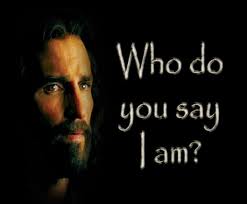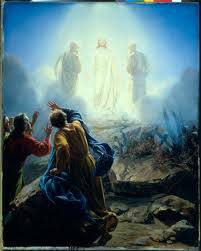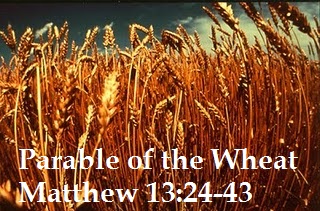
We see in today’s gospel the absolute faith of the official whose daughter had died, and also the absolute faith of the woman who had suffered from a hemorrhage for twelve years. Neither questioned the ability of Christ to heal. Both believed. The official said to Jesus, “Come lay your hand on her, and she will live.” The woman said, “If only I can touch His cloak, I shall be cured.” What can we learn about faith from the example of these two individuals in the gospel?
It is important to know that they were not afraid to approach Christ and to clearly state their needs. In doing so, they realized that their situation was beyond their own control. They realized that they should “let go and let God intervene.” It is of interest that we hear no more about these individuals, no secondary requests, no deals with God, no disappointment that the healings didn’t meet their specifications or any requests for the future. They accepted the generous gifts of Christ and went on with their lives.
It would be interesting to know what happened to these individuals, but really, they are like us, we who are constantly showered with healings and blessings. How do we reflect the many times that Christ has intervened in our lives?
The Lord lets us touch Him as did the hemorrhaging woman . Although Jesus’ body has ascended to heaven, the Lord still takes us by the hand, as He took the hand of Jairus’ daughter, to raise us from the dead. We stay “in touch” with Jesus, and His Incarnation is extended to us now especially through the Church and the sacraments.
Some people may think that touching, hearing, and seeing Jesus sacramentally is not as good as touching Him physically. In fact, it is much better. The hemorrhaging woman was blessed with a healing, but had nothing like the amazing privilege we have of receiving the Body, Blood, soul, and divinity of Jesus into us. The girl raised from the dead received a great miracle, but eventually died. However, we who live today can be raised from the dead forever by letting Jesus give us a new nature in the sacrament of Baptism.
By becoming members of the Church, we not only touch Jesus but also become parts of His Body in a very real way. Through the Holy Spirit working through the Church and the sacraments, we live in Christ and He in us. Celebrate the sacraments. Live in touch with His love.
In Jesus we see the infinite love of God extending to each and every individual as he gives freely and wholly of himself to each person he meets. Do you approach the Lord with confident expectation that he will hear your request and act?
“Lord Jesus, you love each of us individually with a unique and personal love. Touch my life with your saving power, heal and restore me to fullness of life. Help me to give wholly of myself in loving service to others.”
Filed under: Uncategorized | Leave a comment »










